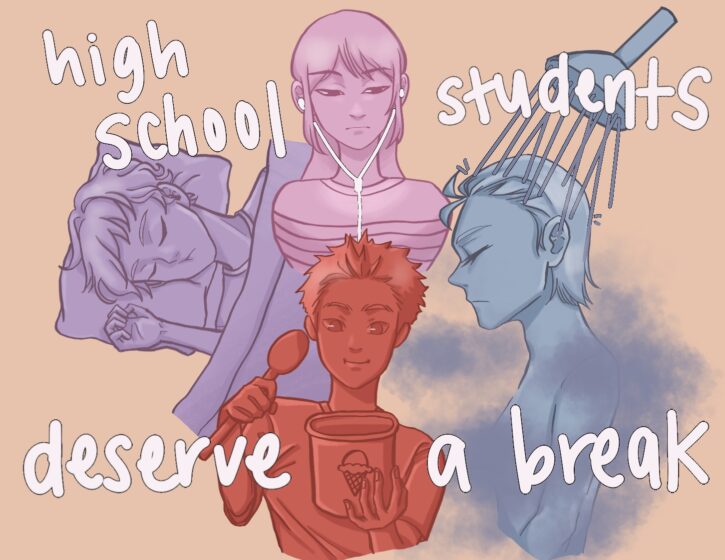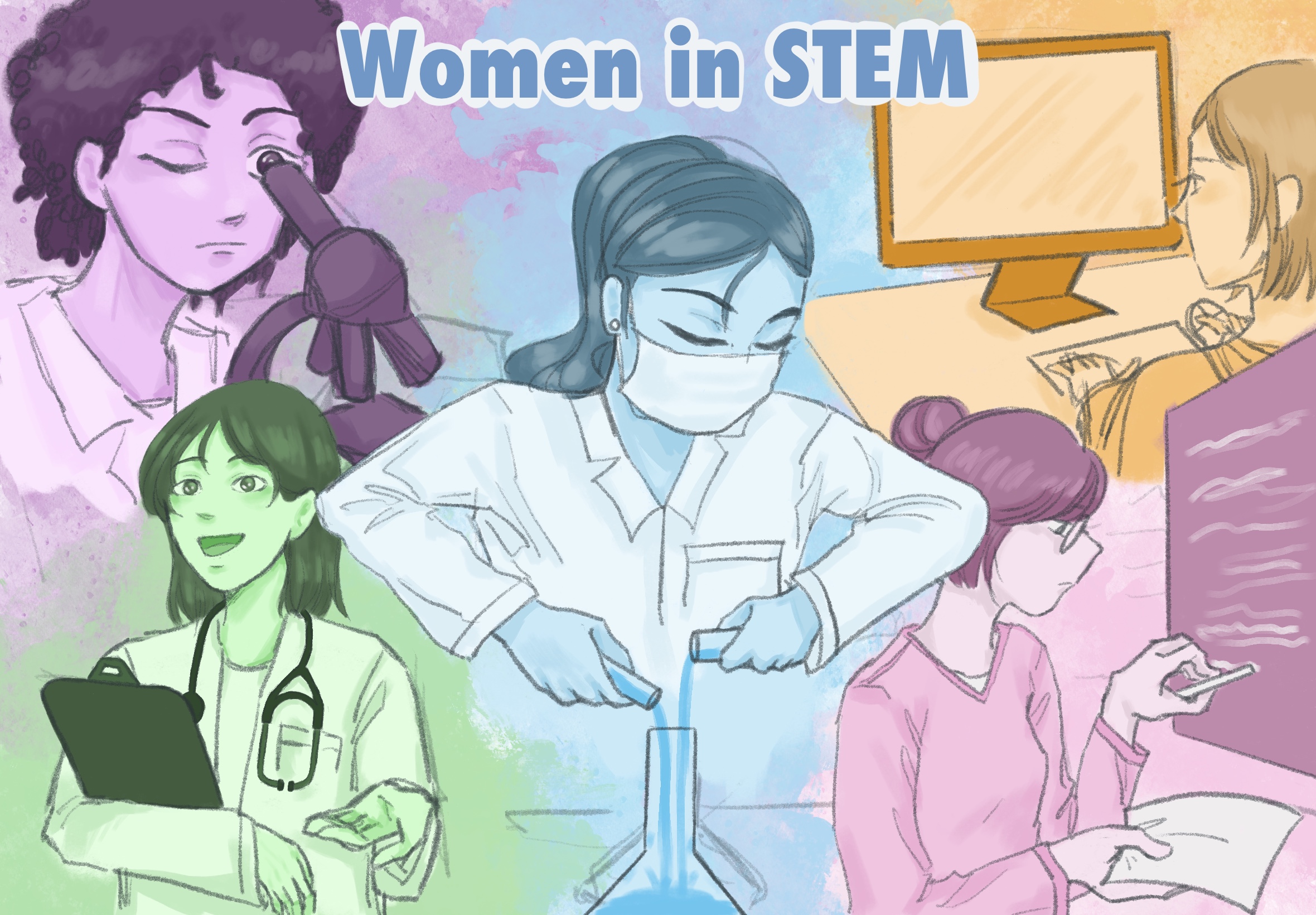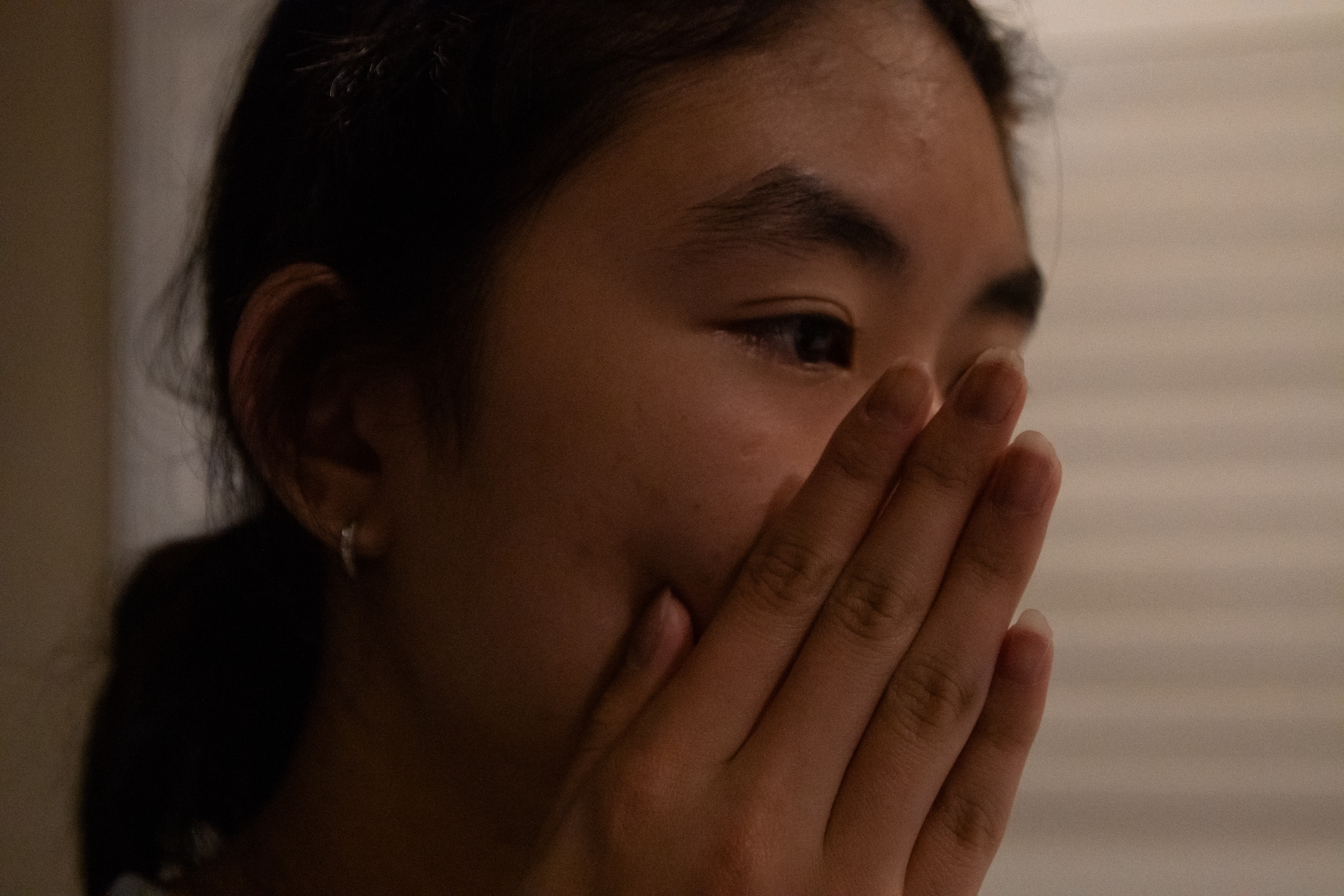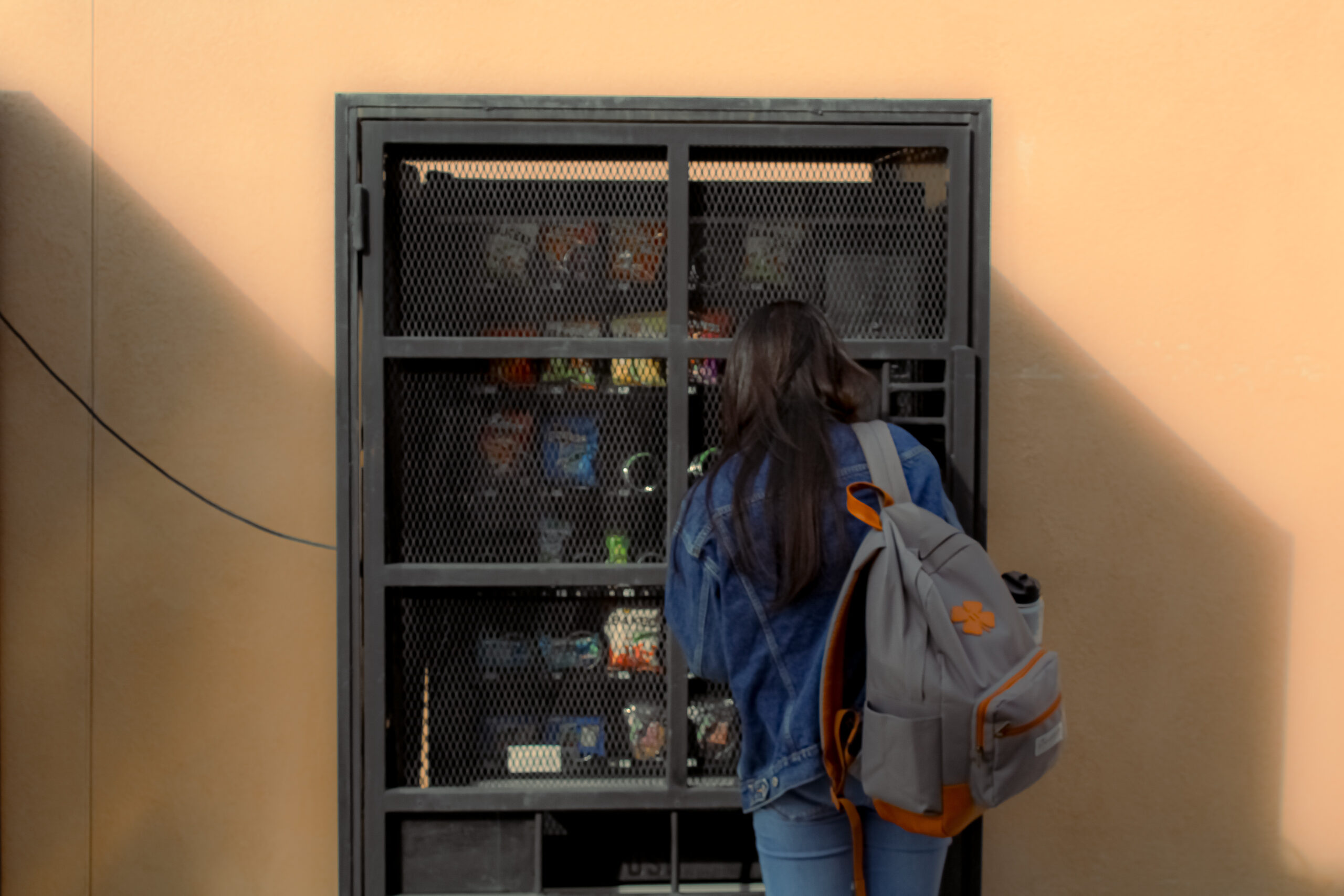
By Priscilla Le
Alan Cohen once said, “There is virtue in work and there is virtue in rest. Use both and overlook neither.”
Cohen’s words, although wise, don’t seem to resonate with teenagers of this present day. Between running around for academic pursuits, extracurricular activities, music rehearsals, sports games and more, high schoolers have a penchant for being all work and no play.
That surely is the culture at Fountain Valley High School and several academically competitive schools. But more often than not, this “hustle and bustle” is mindless and insignificant. Such immersion stems not from a love of school but from a desire to look good on a resume or transcript.
Looking past this niche group and to students in general, the trend continues. Even mentioning the word “school” will find audible and physical revulsions from teenagers. This is because school has become known as less of a chance for intellectual growth and curiosity to more of a competition to see who can get the most points.
How did it get this way? Societal pressures that overemphasize the need to get into a prestigious college, a toxic academically competitive environment and a lack of identity if we do not pursue this route.
When we as a society continue to perpetuate such suffocating academic standards on our youth, we won’t be left with teens who don’t just have little desire to learn, but mindless, point-hungry and depressed children. How do we stop this from happening? We need to give high schoolers a break.
When looking at the college admissions process, the emphasis to go to a college solely for its name is a driving factor. Additionally, the prestige that is associated with such colleges makes it seem as if students have to get into those colleges or they will never succeed in life.
This increases demand for those elusive spots. As more and more students vie for a seat at Harvard or Cornell, the academic standards they need to achieve rise exponentially.
In the end, seventeen-year-olds, people who are not even old enough to vote, are tasked with the mission of saving the world, ending climate change, eliminating epidemics, discovering a new species and inventing the next mathematical theorem to even compete with the millions of other high school students that are doing the same.
These pressures are suffocating as students find ways to best advertise their amazing accomplishments while simultaneously feeling insecure that they haven’t “done enough.” This causes the cycle to become more vicious, as students continue to push their bodies to unmentionable extremes to maybe, just maybe get that acceptance letter to make all of the grueling hardship worth it. This type of thinking should be discouraged, not perpetuated every year for the next class.
Pressures also find themselves on high school campuses. Although the standard of academic excellence is innocuous, it has ballooned into the toxic culture we have of loading up on APs, overextending ourselves in club participation and doing work solely to gain points that add up to an A.
Think about it. When did school stop being fun?
When it felt like we were doing assignments for points instead of learning.
When we stopped inventing, exploring and creating for intellectual pleasure and instead did it to fill out an extracurricular list for college applications.
When we stopped taking AP classes because we were interested in the subject and did them to be academically competitive with the rest of the people in our grade.
When we took honors classes to move up in class rank instead of challenging ourselves for growth.
When did the fundamentals of school become so skewed?
When the pressure to be the best overshadowed the importance of collaboration and teamwork.
Learning is not just an individualistic activity. We learn from each other, grow in our understanding by considering multiple points of view and continue our learning outside of the classroom in our conversations.
When the pressure is less on learning the information and more centered on the objective of gaining points, then there will be no conversations. We won’t even care anymore. We’ll just care enough to get an A. Not to learn. Not to grow. And we wonder where senioritis and burnout come from.
Such societal pressures don’t foster a love to improve, but a hatred for school. All this is because society puts such emphasis on academic excellence measured through a letter rather than true understanding. We are reaping the results of such a flawed education system.
But students don’t have to conform to these standards, right? Actually, we do.
In order to survive in these academic situations, we have to take several APs in subjects that we might not even enjoy. There’s a reason why it’s a culture to take such classes. If you don’t, you’re the outlier. Conformity is the safer option, so we conform at our own risk.
On the other hand, consider a student who is dropping their APs. In such an environment where academic achievement was the only ideology preached for the majority of their lives, such a sudden change would leave a sense of uncertainty. For a student who has pursued academic goals for the majority of their life, dissociation would occur from their sense of self, which was attached to academic fervor for so long.
In essence, if we are doing less with our lives, it will also make us feel more unproductive and uncertain, making APs seem like the more comfortable option.
But that just perpetuates the suffocating pressure that we should be trying to get rid of. These are just some of the repercussions of these pressures. We haven’t even considered other mental effects and their lasting implications.
Take into consideration, for example, the growing rate of depression among teenagers.
According to the National Library of Medicine, “The 12-month prevalence of [major depressive episodes] increased from 8.7% in 2005 to 11.3% in 2014 in adolescents” (NIH). And the percentage continues to rise; in 2016, it was 16.5% (NAMI).
Such depression, although not solely caused by academic pressure, is certainly influenced by it.
Newport Academy notes that “environmental factors—stress in particular—play a significant role in mental illnesses like teen depression.” So if “..for many adolescents, school is an ongoing source of stress,” that stress can “eventually lead to depression.” Additionally, “If a teen already has depression, the stress of school can make it worse.”
Of course, this doesn’t mean that we should never have any stress from school. Stress provides the possibility for growth, adaptation and refinement. After all, “a diamond is a chuck of coal that did well under pressure.” But the stress that contributes to depression is the kind that is excessive for the age that high schoolers are. Thus, there needs to be a change in the amount of stress, from the type that causes depression to the type that forms diamonds; that is to say we need to promote stress that is more manageable.
If no change is done, as is the case now, then the stress teenagers face today, which is comparable to those of adults, will lead to “the adolescent brain [which] is more sensitive to stress hormones…[to] suffer damage from stress that lasts into adulthood” (Iliades).
Permanent brain damage doesn’t sound like such a great trade for continuing this lifestyle, considering you’d also be suffering through endless assignments, the duties of various clubs, lack of sleep and turning down opportunities to have a fun high school experience to study, but maybe that was just my experience.
This stress, and the demands it causes on our bodies, is not healthy for sustained periods of time.
So what can help ameliorate this devasting situation?
At this point, society has gone too far and cannot pump on the breaks. There is content that needs to be learned in a certain amount of time (i.e. AP classes), class ranks are in full force and there are certain accomplishments colleges want to see.
These pressures, which are here to stay, need to be managed rather than removed. One way to do this is for schools to reduce the stigma of alternatives to activities that bring academic pressure.
Concurrent enrollment allows students to take classes that would place a burden on their schedule, lightening the load they have.
Community college provides an excellent opportunity for higher education, allowing students to transfer while also saving money.
Even encouraging students to seek help when they cannot handle stress, encouraging mindfulness in classes, even if it’s for 10 minutes on a Monday, hosting talks on mental health or providing stress animals once in a while can have productive effects. Investing in these services might even provide more useful applications to change students’ lives than a 5 on the AP Biology Exam would.
It would be naive to expect society to just stop and make a full turnaround in relation to academic pressure. But it is pragmatic to consider ways to ameliorate the situation in ways we can actually make a change. We need to give high schoolers a break, not just by reducing the unrealistic expectations on them, but also removing the stigma of getting help or of using alternatives.
There needs to be an emphasis on lightening the load so that these teenagers can manage the stress. If not, we run the risk of suffocating our youth under the pressure that we have placed on them. And that doesn’t sound like such a bright future.





